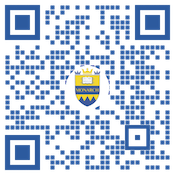Dr. Alain Bujold is a world-recognized innovation strategist and graduate of the DBA program at Monarch Business School Switzerland where he is presently completing a PhD. With over 27 years of applied research and development experience, he has led more than 140 advanced technology projects across defense, law enforcement, and industrial sectors. His portfolio includes 18 patents and numerous globally deployed innovations, including military-grade exoskeletons and next-generation helmet technologies. He is currently completing his doctoral dissertation focused on biomimicry-driven helmet design for traumatic brain injury (TBI) mitigation—a body of work that has earned international recognition, including a featured interview on NASA’s Ecosystemic Futures podcast.
Throughout his career, Dr. Bujold has demonstrated a unique ability to translate complex scientific insights into commercially viable, human-centered solutions. He served as Chief Executive Officer and Chief Technology Officer of Mawashi Science & Technology for two decades, where he oversaw multimillion-dollar R&D portfolios and collaborated closely with NATO, USSOCOM, and the Canadian Armed Forces. A passionate advocate for cross-disciplinary innovation, he has been a voting member of the Canadian Standards Association and has served as a scientific advisor to the University of Manitoba. His research methodology blends TRL (Technology Readiness Levels), Stage-Gate decision models, and grounded theory inquiry to create replicable frameworks for disruptive innovation.
At Monarch, Dr. Bujold teaches and mentors across domains of biomimicry, human factors, and entrepreneurial innovation. His work is anchored in system-level thinking and a strong commitment to practical application—embodying Monarch’s mission to foster globally relevant research that creates measurable social and technological impact. His recent doctoral findings propose a radical departure from conventional materials-based helmet design, instead focusing on ecosystemic energy redirection—drawing lessons from nature to address one of today’s most urgent public health and safety challenges.
Scan below for Dr. Bujold’s digital business card.


